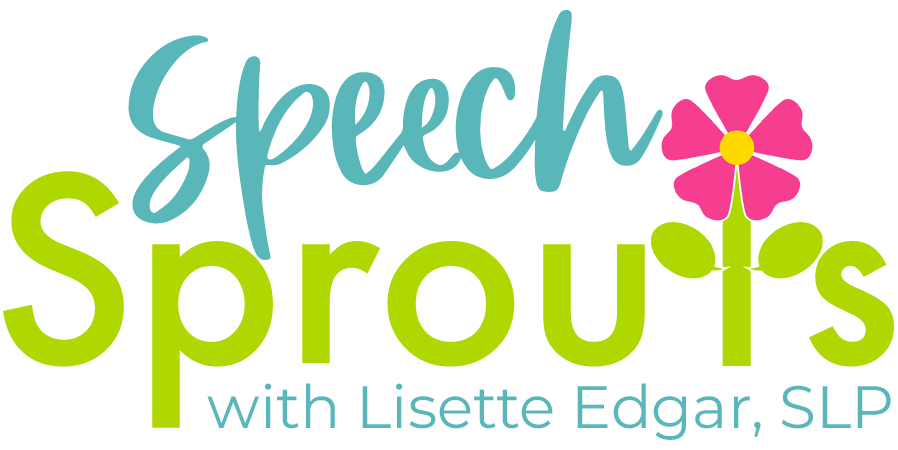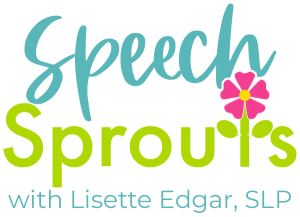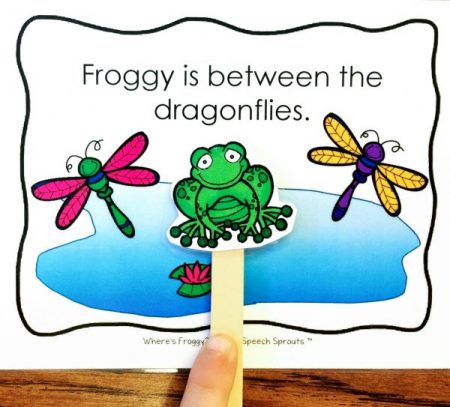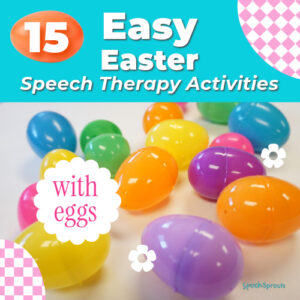
A Letter to Me as a New SLP – 5 Things I Really Needed To Know
Are you starting your SLP career as a CFY or will be soon? Or maybe you are a veteran speech-language pathologist, looking back and thinking “When I started, I wish someone had told me…. Well, today I am going back in the time machine, to have a chat with that younger me.
I am teaming up with the Frenzied SLPs today to share what I wish I had known 17 years ago.
To be more confident, more inspired, more prepared for my SLP journey. I hope you read through all the posts in this wonderful linky below because you will be inspired, laugh a little and maybe see yourself there too. So here we go.
A Letter to Me as a New SLP
Dear Lisette,
Congratulations! You made it through grad school and are ready to embark on this new chapter in your life as a speech-language pathologist. First of all, you have a right to be proud. You have worked so hard to earn your entry ticket into this awesome profession. I know you’ve been trying out writing your signature with those precious letters after your name just to see how it looks! Your hard work and dedication have brought you to this point. So revel in it with your family and fellow grad school friends. It’s exciting!
So now you have been hired for your first job as a speech-language pathologist. Along with the excitement is that knot of uncertainty in the pit of your stomach as you think about what is ahead. Did I learn enough to really do this? Will others take me seriously as a professional? What will I need? How do I get started?
I am here to say that you will be awesome! I also want to share with you some things you really need to know.
5 Things You Really Need to Know Now
1. You will have a million questions, and that’s okay.
You need a mentor. Or two or three. Don’t worry, you are not annoying them. They will expect you to ask questions. It is not a sign of incompetence or weakness. Go ahead and write yet another e-mail asking how to do something. Your mentors were there once, they get it, and will respect you for wanting to do the job right. There is still so much to learn.
You didn’t learn the daily nitty-gritty of the job.
Everything you learned in grad school was essential and is a rock-solid theoretical foundation for your career. You do have the knowledge and skills to make a difference! But which box do I check in this software program? What test would you recommend for this student? How do I conduct an ARD meeting? How can I get this preschool student to participate? Just exactly what kind of activities will work for this student with autism? Ask.
2. Others will see you as the professional if you do.
Approach every conversation with that mindset. You are the expert in your area. Yes, you are. The other educators in your building will assume that you can do the job because you are in it. So speak up and approach your conversations with teachers, parents, and administrators with confidence. Also, don’t be afraid to admit “I don’t know, but I will find out.”
3. Most people do not understand your role. Sorry.
Most people have no idea. They don’t realize the complexity of your training you are so proud of or understand what you bring to the table for students. I am still puzzled as to why this is, but it’s true. Teachers and parents often don’t have a clue. Yep, even your principal. Maybe even your special ed director. Years later, even your family still doesn’t understand it, really.
I know it annoys you to be called “speech teacher” because that title does not represent your true role and your specialty. Besides, you worked super hard through anatomy and physiology, motor speech disorders, statistics, audiology, phonetics, and all those other classes, and you would love to be recognized for that. Sorry- but that is going to be an ongoing issue. You will have to educate others throughout your entire career. It’s part of the job. So speak up and spread the word about our profession.
4. Advocate for a decent workspace and materials.
Let me say that again. Advocate. Respectfully and in writing when necessary.
Do not accept the crowded corner of the storage room that is unsafe for your busier students or the noisy space next to the cafeteria, that sets off your student with autism. If you need materials, state why they are necessary to your student’s progress.
Don’t just say I would really like x-y-z. The job of administrators is not to keep you happy, ultimately. It is to provide an appropriate education for their students. Back up your request with facts about your student’s needs to provide a Free and Appropriate Education (FAPE). Tell how the lack of an adequate, distraction-free workspace or materials may be denying FAPE. State how it is detrimental to your student’s progress and that it could lead to the school’s liability if a parent has a concern.
5. Simple activities can be awesome!
You do not have to have the most awesome activity ever to engage your students and have a great therapy session. You do not need 10 different individualized activities each day. That’s exhausting!
Almost any activity can be modified to meet a wide range of goals. Sometimes you will want to do that oh-so-awesome project, but it is not required at all. Get on the floor. Read a book. Throw a bean bag. Or a wadded-up paper “basketball”. Play, sing, dance, create, and have fun. Just make sure you are getting plenty of responses. Bring your enthusiasm and a simple plan and your students will love it. You will have so much fun too!
No worries, you’ve got this, Lisette!
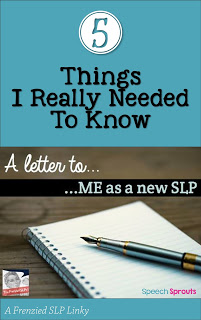 You will adore your students, and they will love you too. Your heart will be touched. Some have been
You will adore your students, and they will love you too. Your heart will be touched. Some have been
“my kids” for 7 or more years. They will delight you, frustrate you, make you laugh, make you cry, and make you feel like they are family. It doesn’t get better than that.
Enjoy every minute of the ride!
I hope you read all the posts, so worth it!
Until next time my friends!
Doyle Speech Works
Old School Speech
Looks Like Language
Speech Universe
Speech 2 U
Enjoy!
Share it:
- Read more about: Uncategorized
